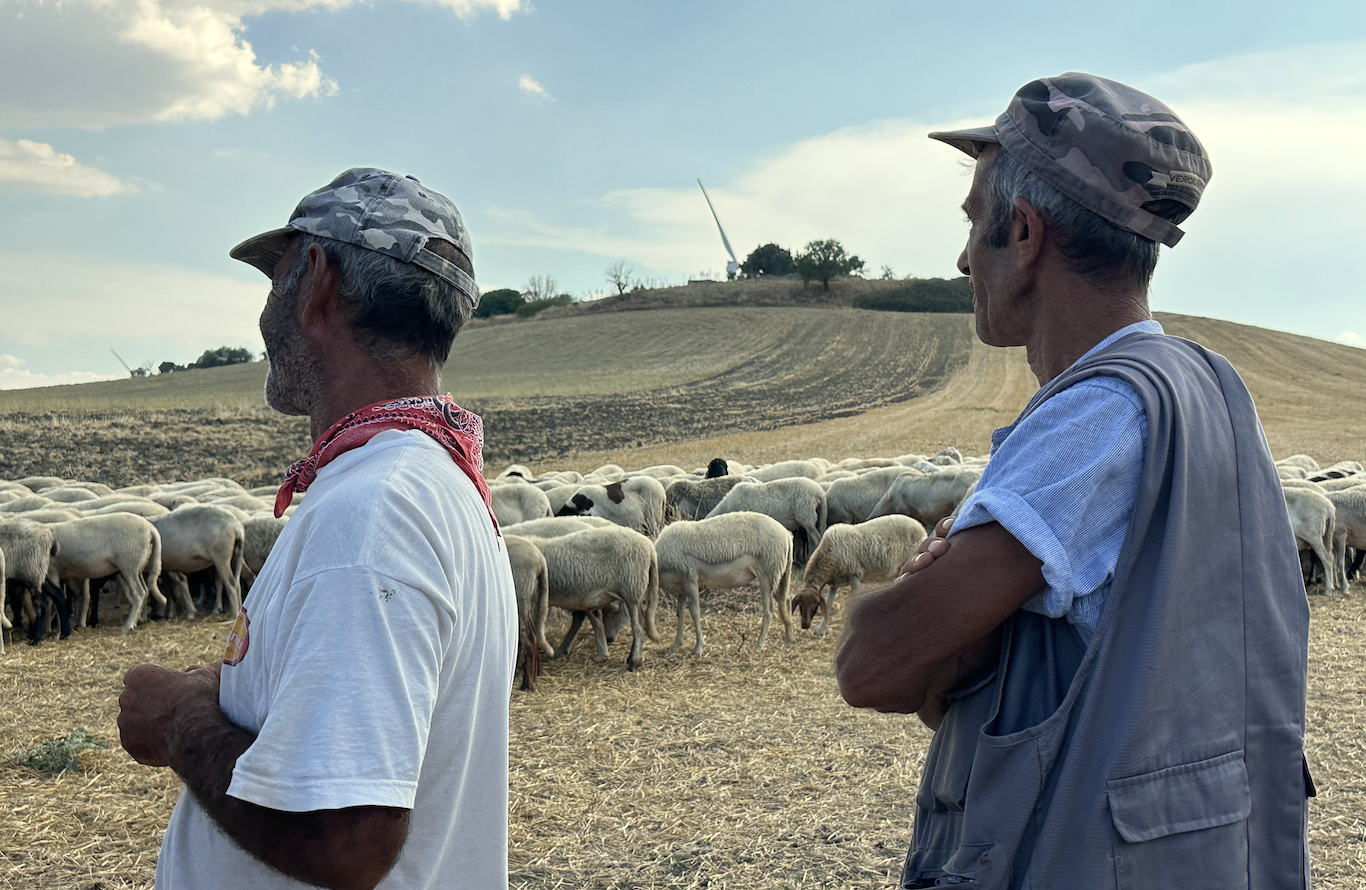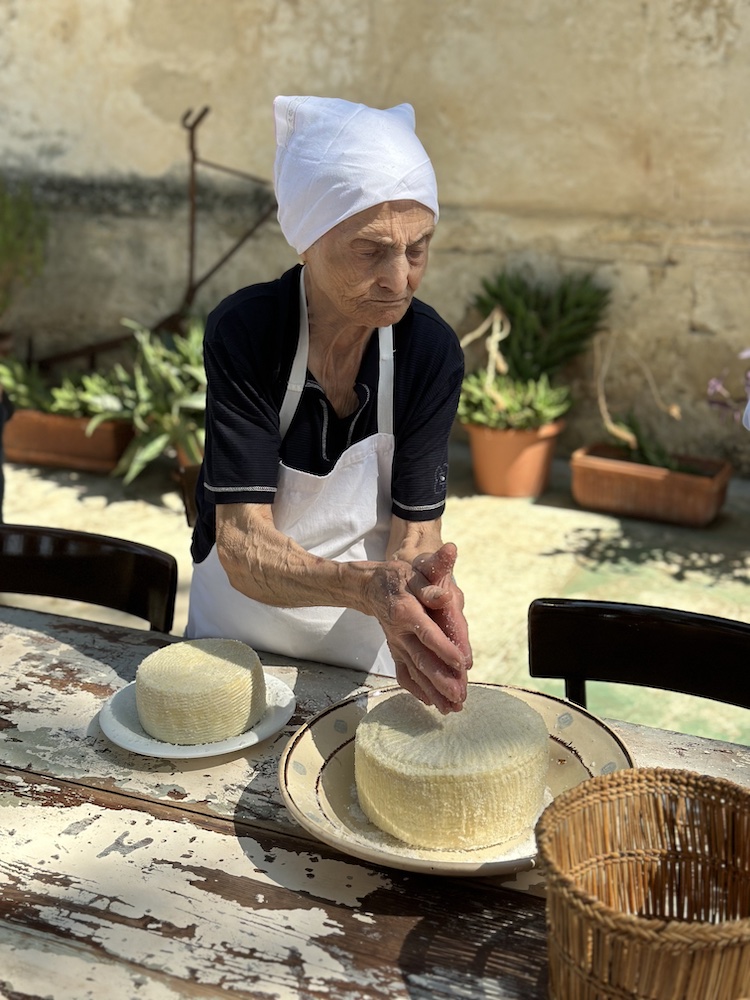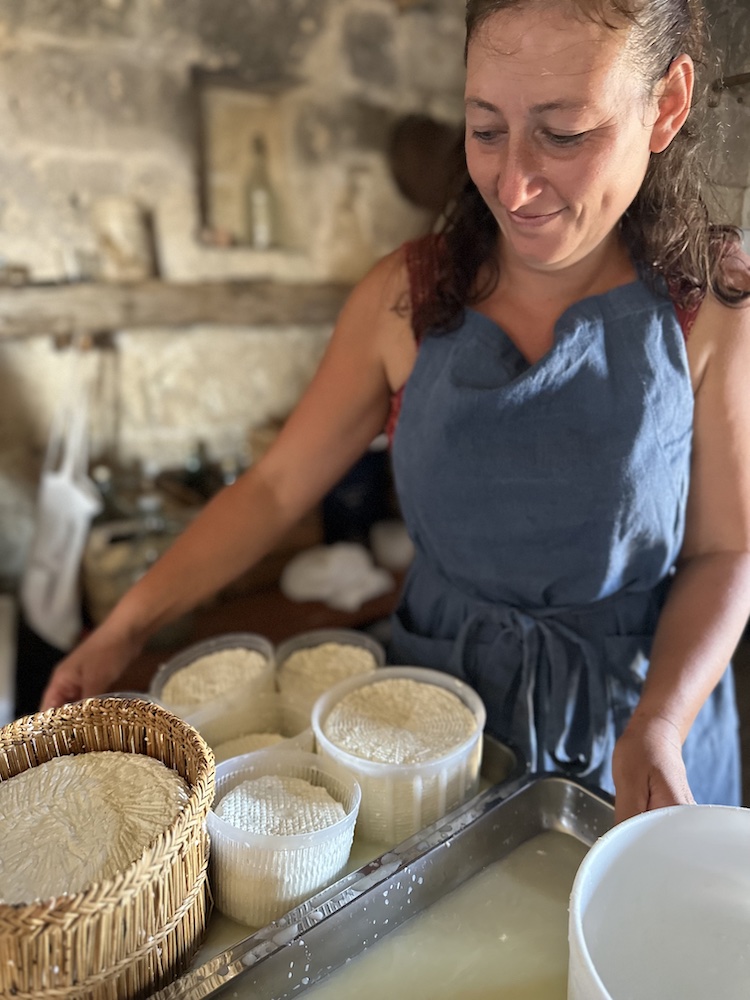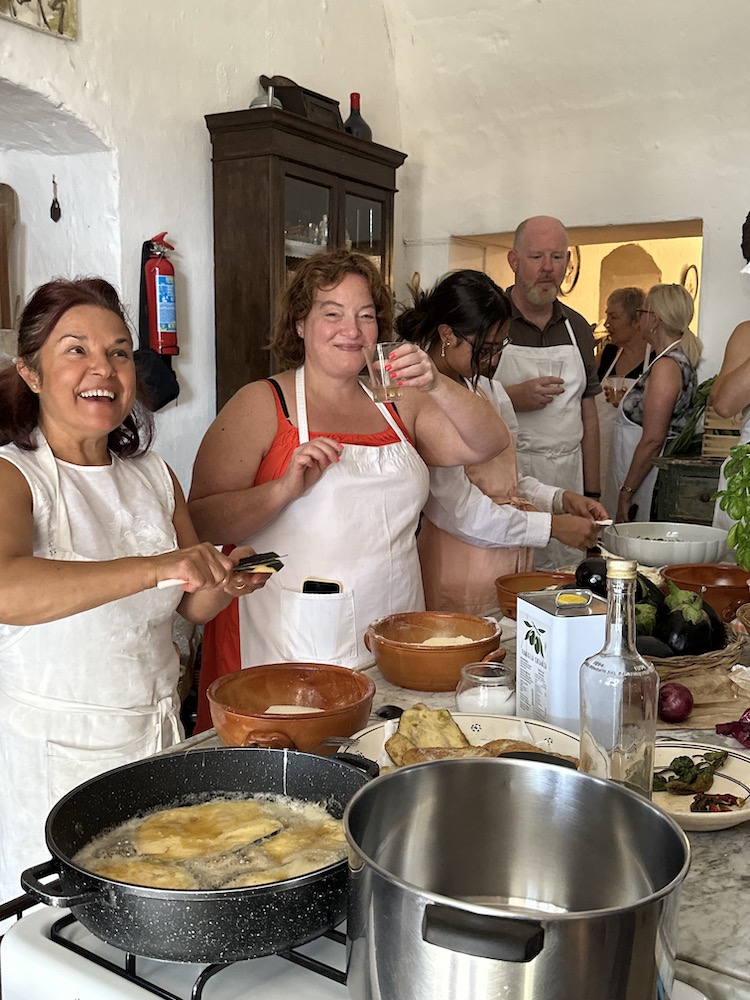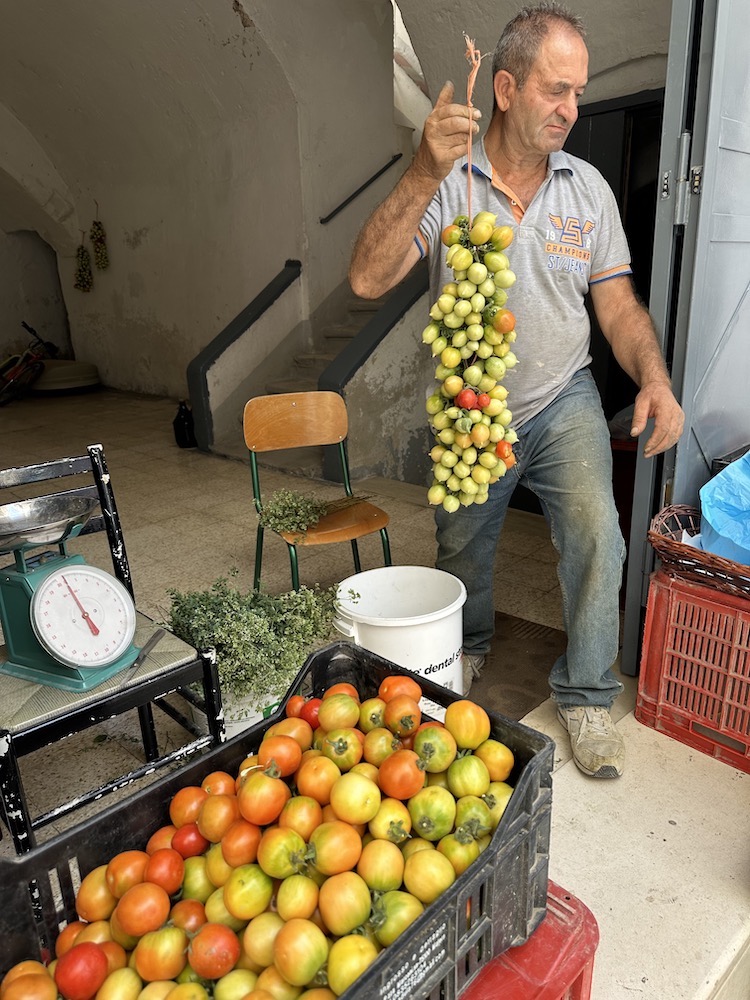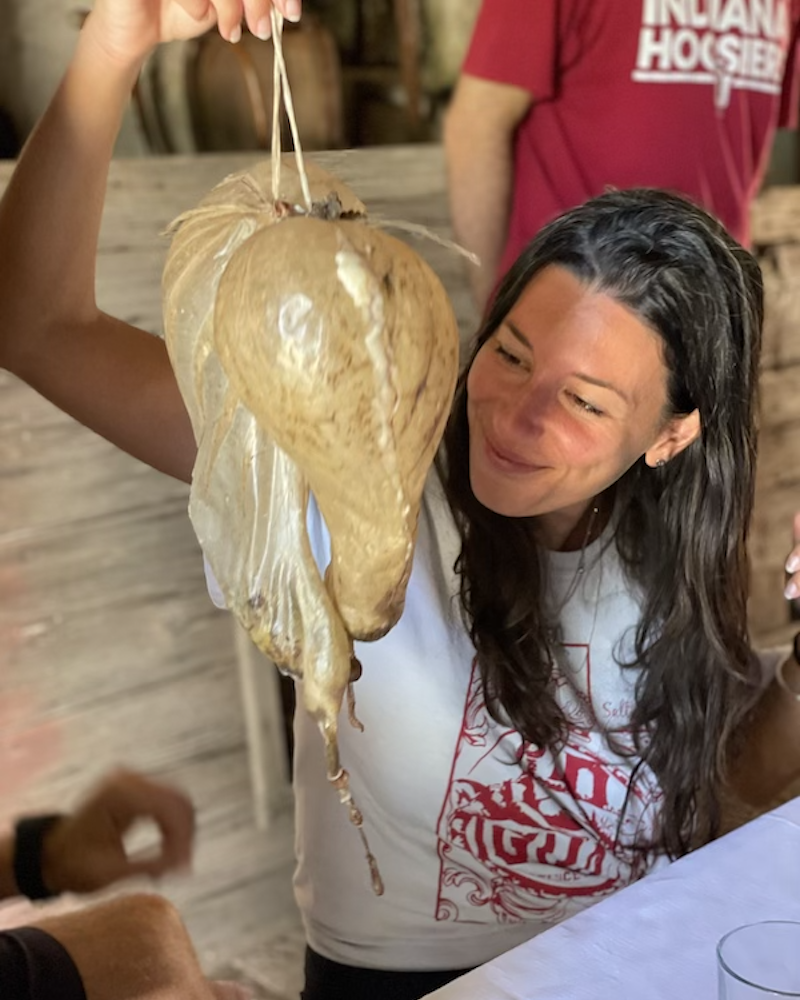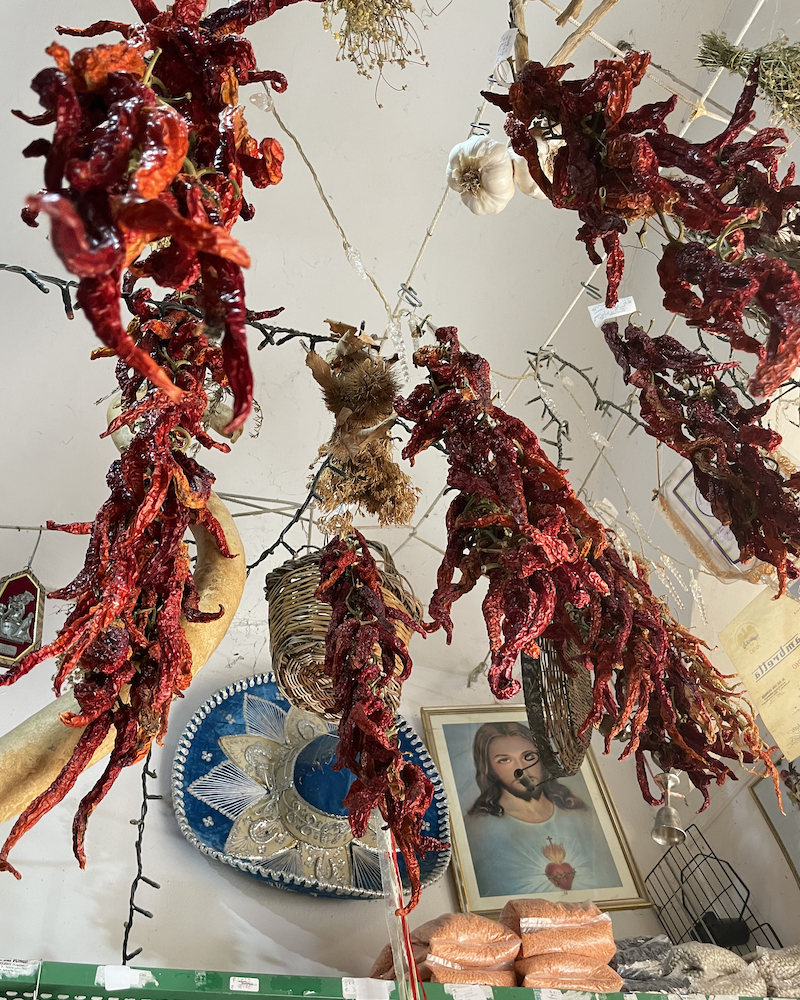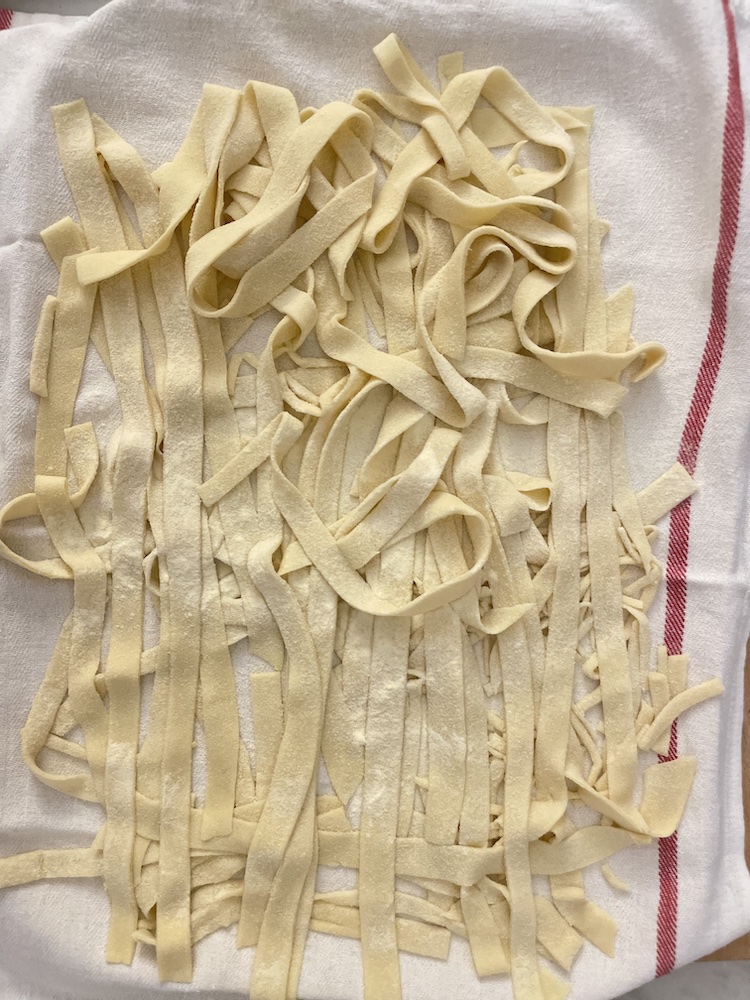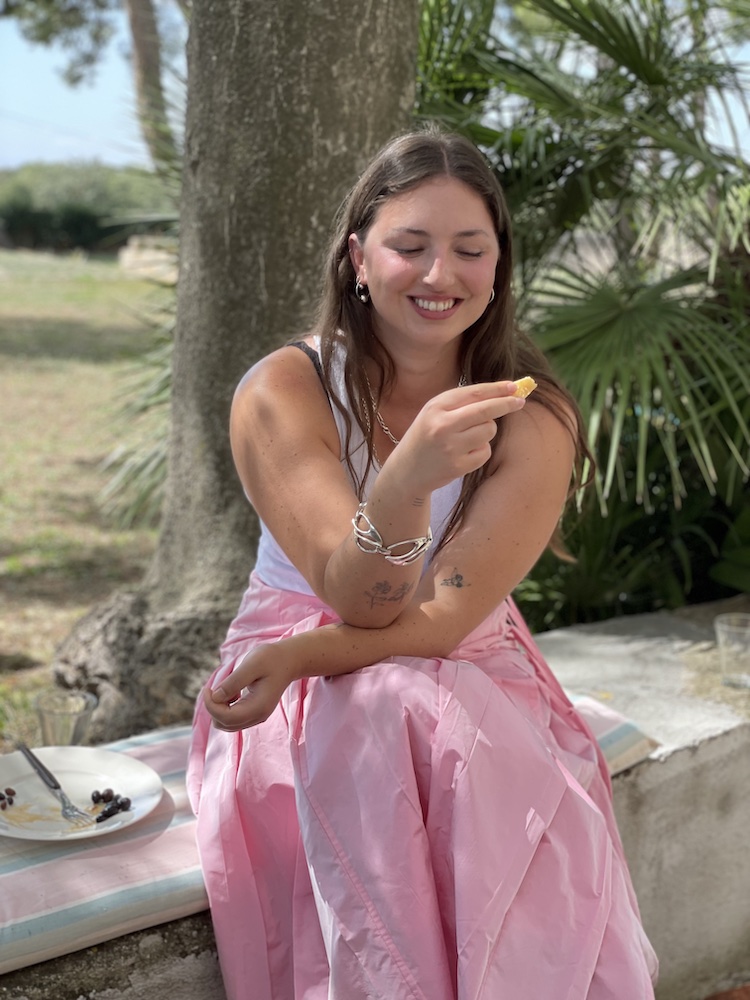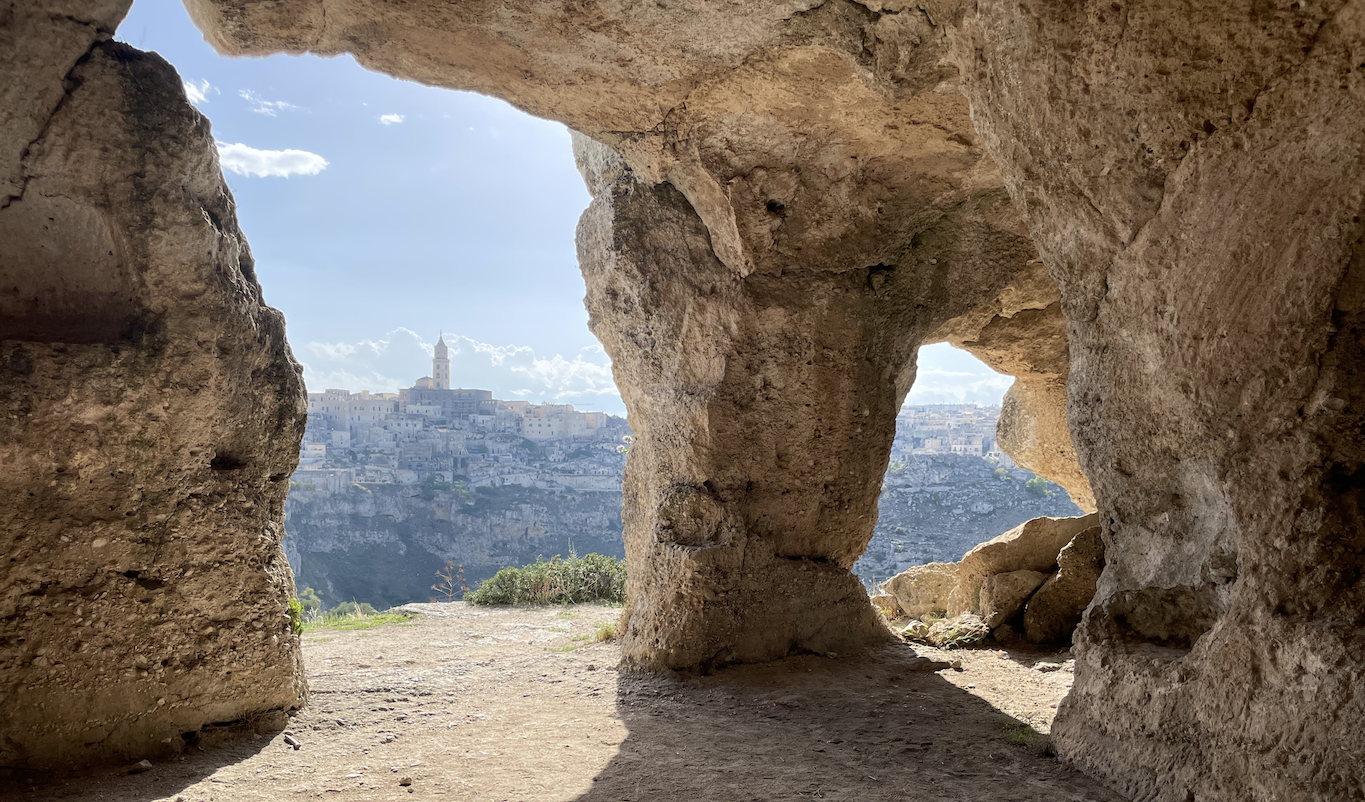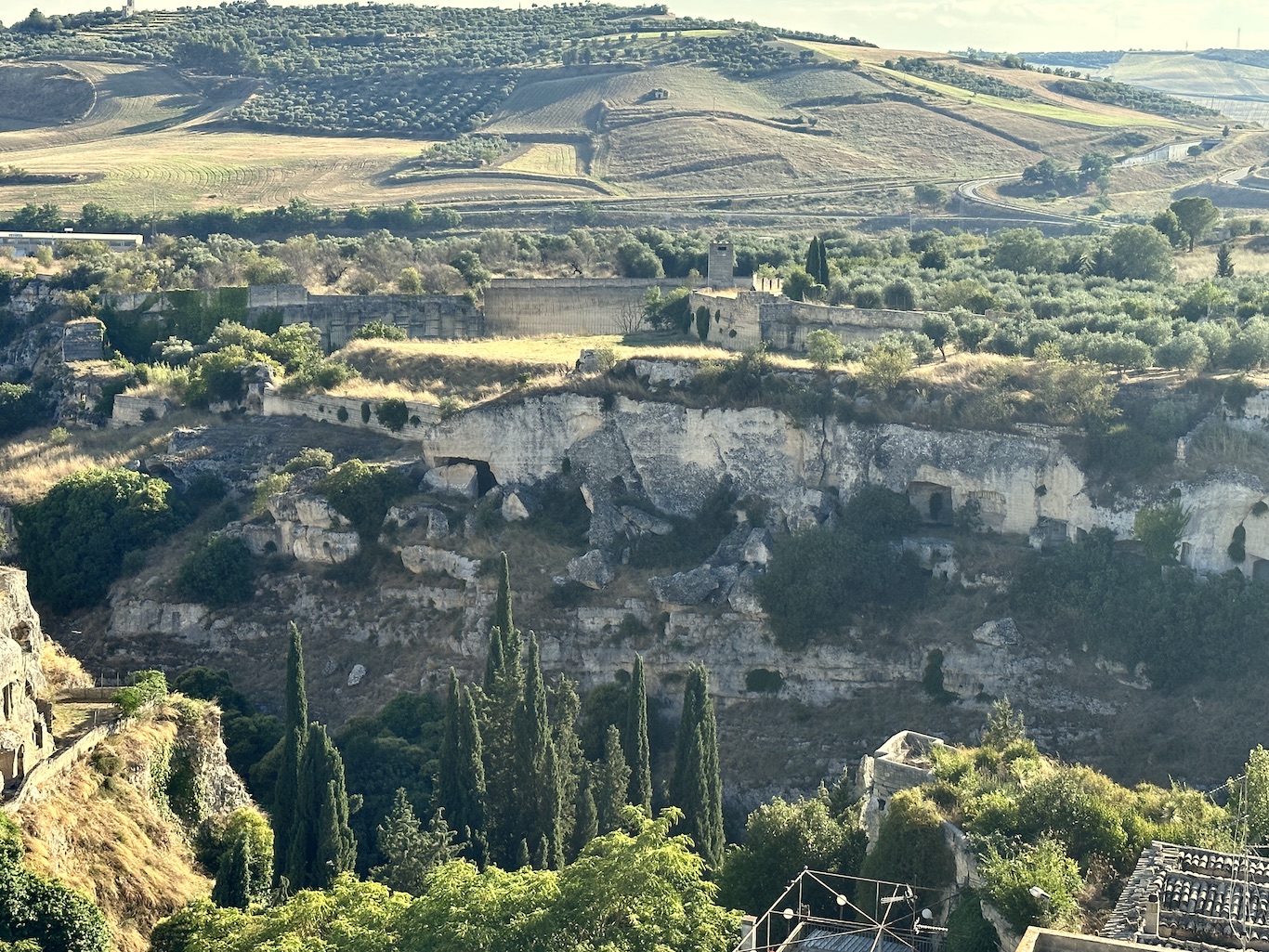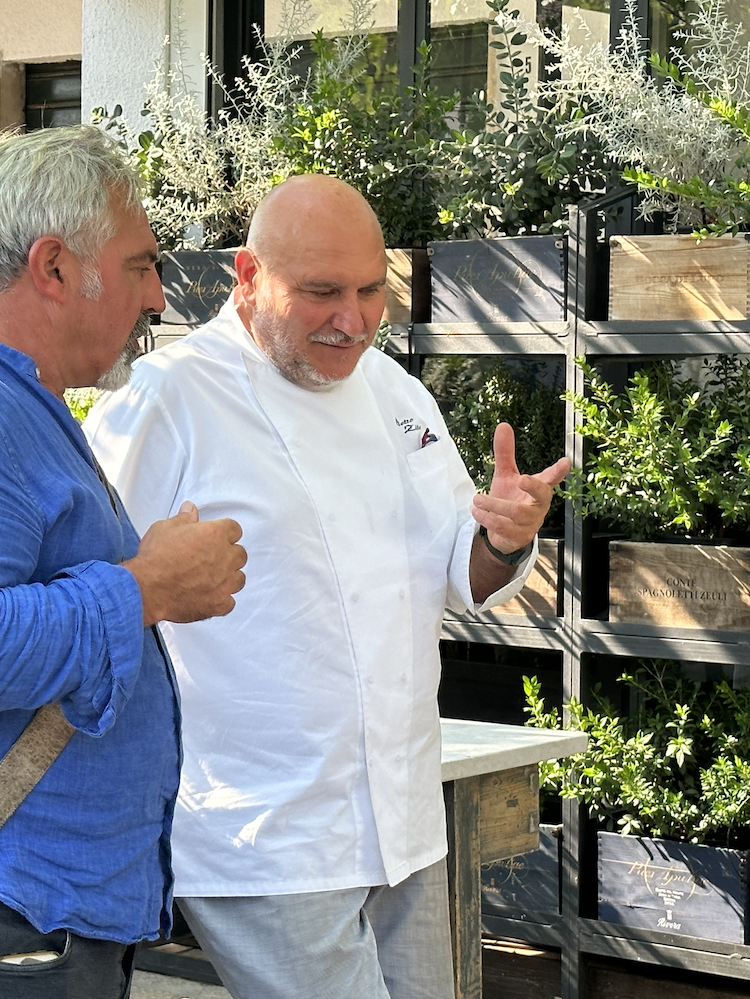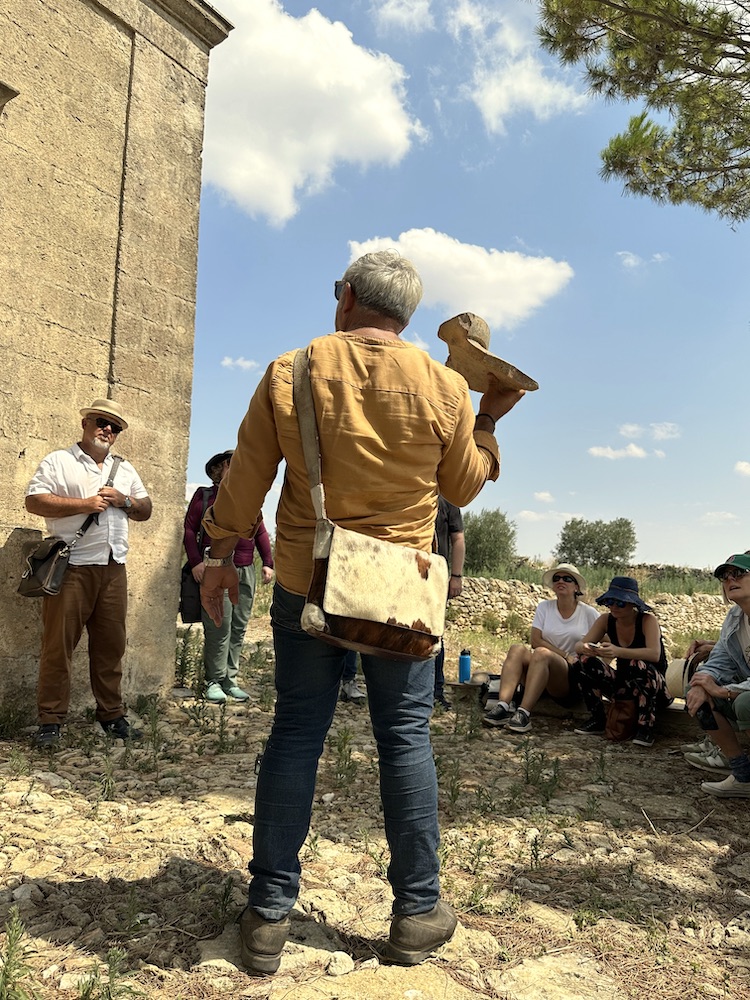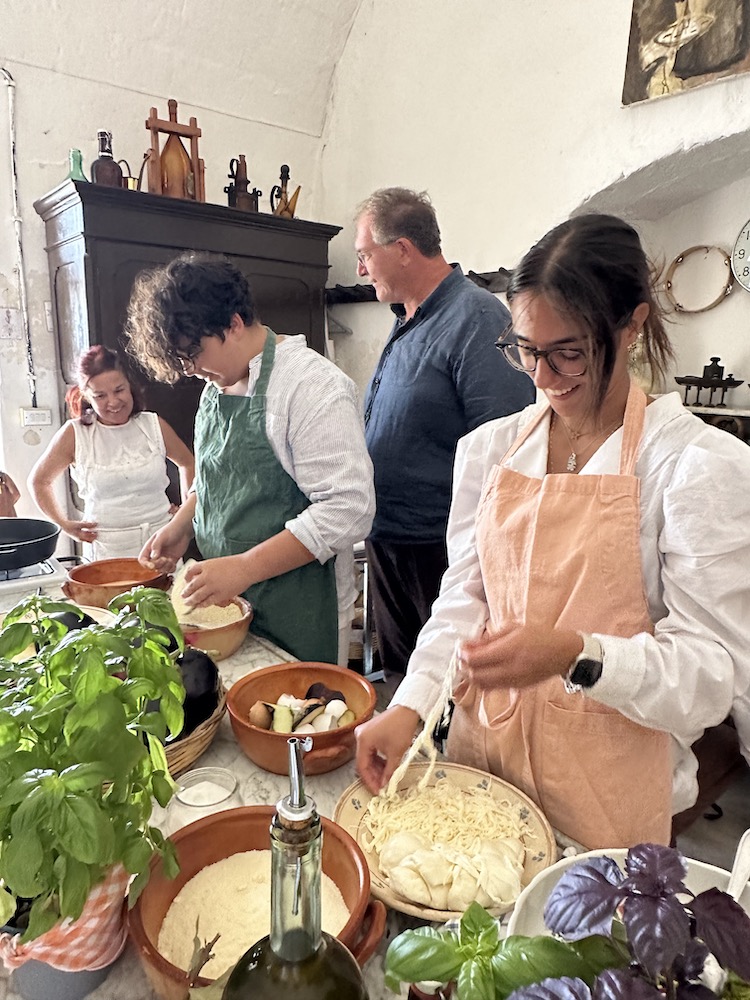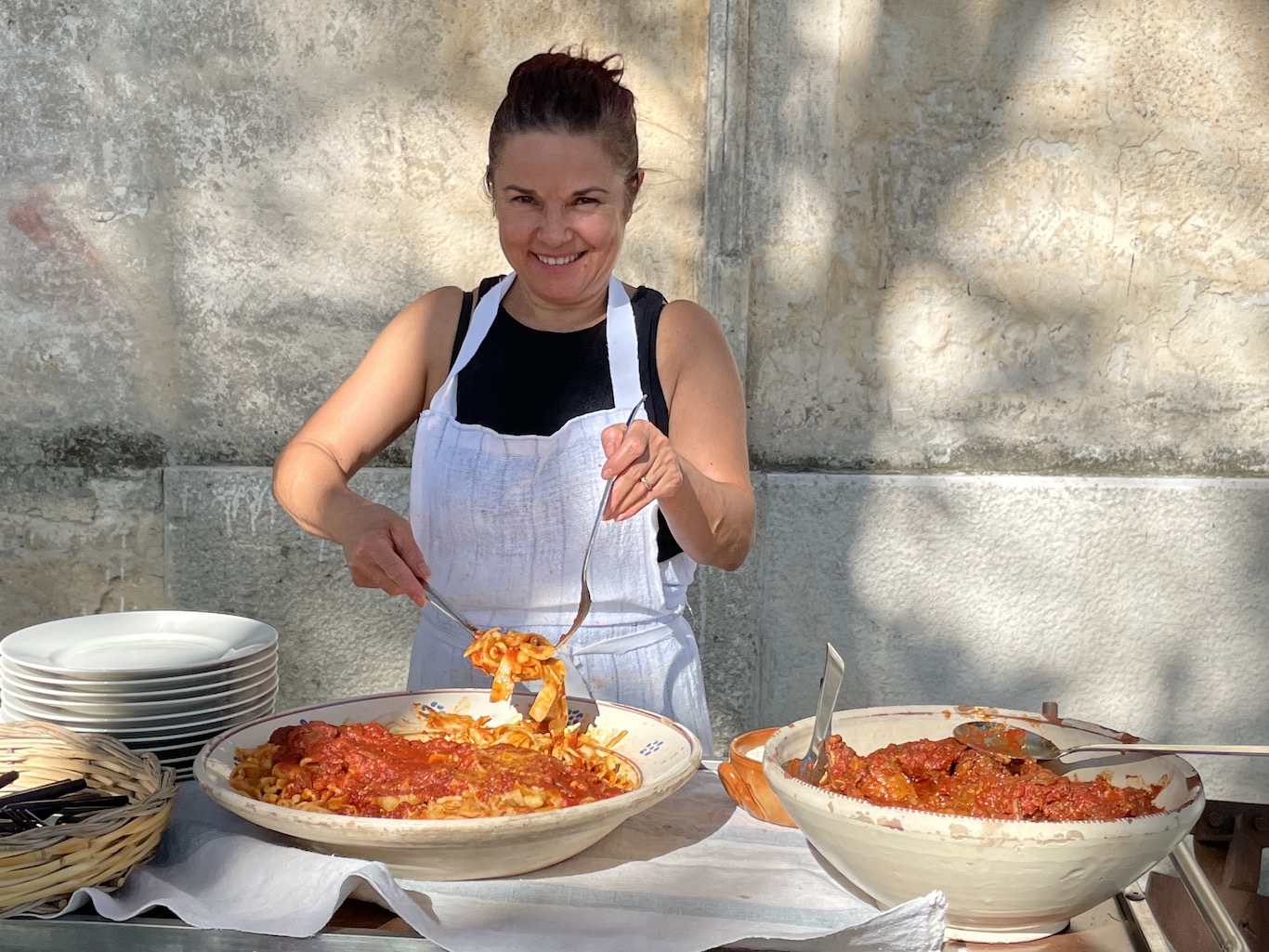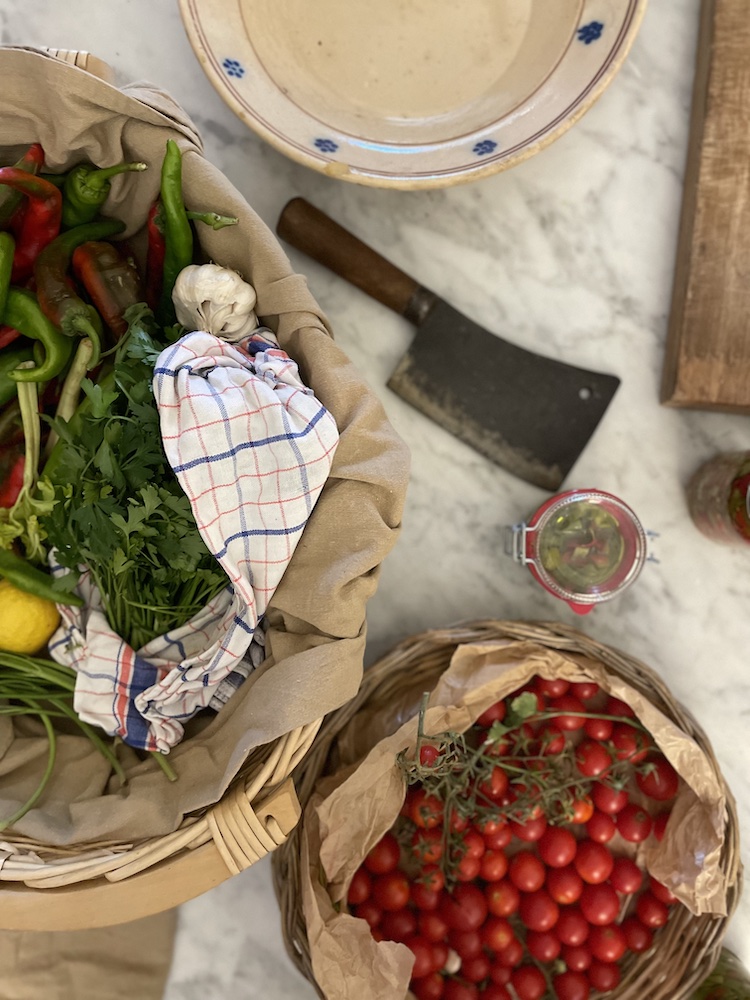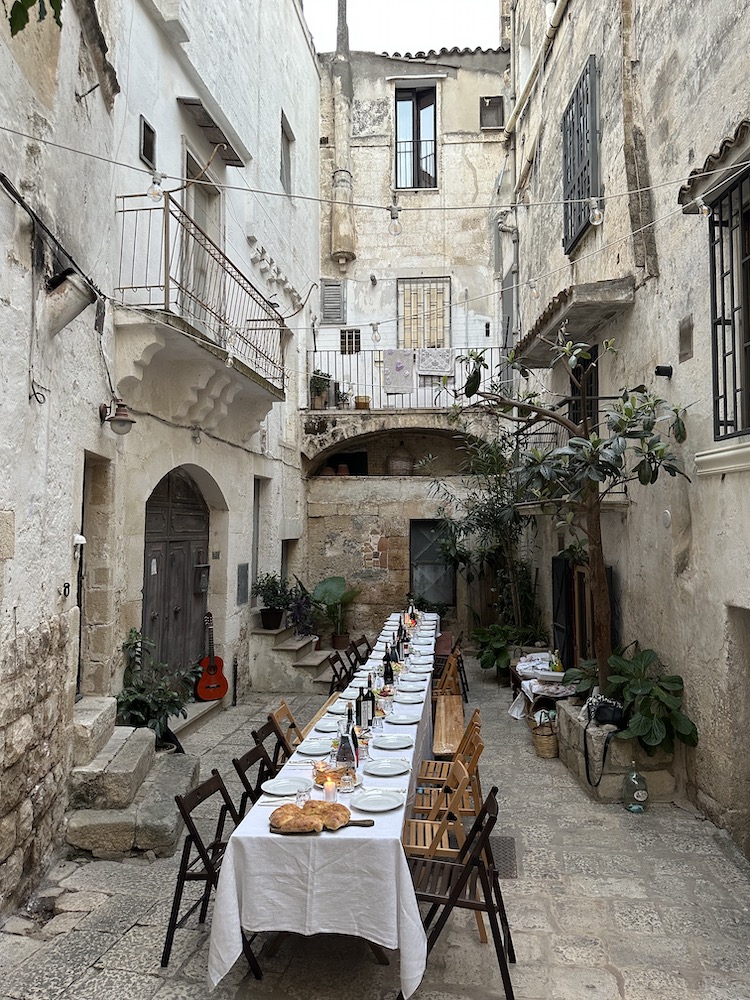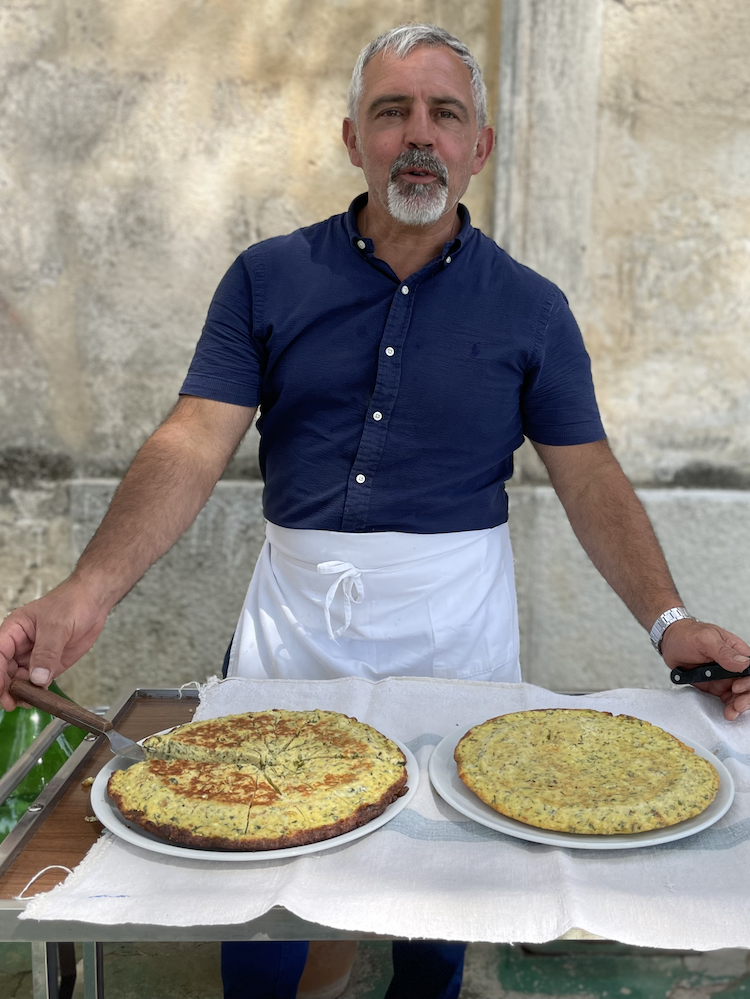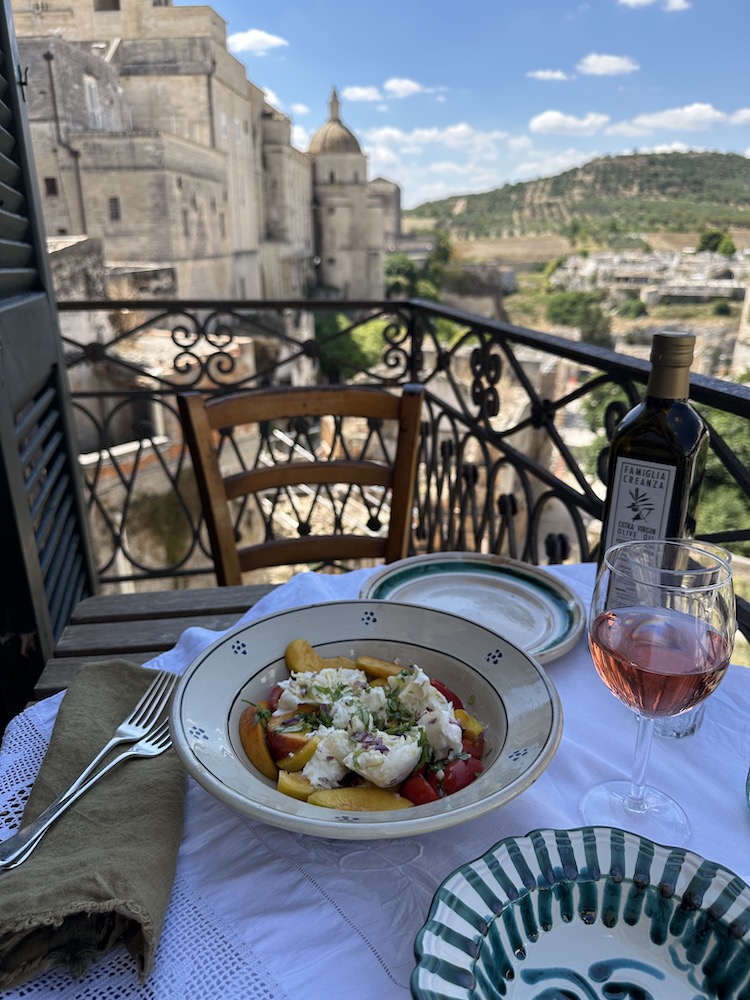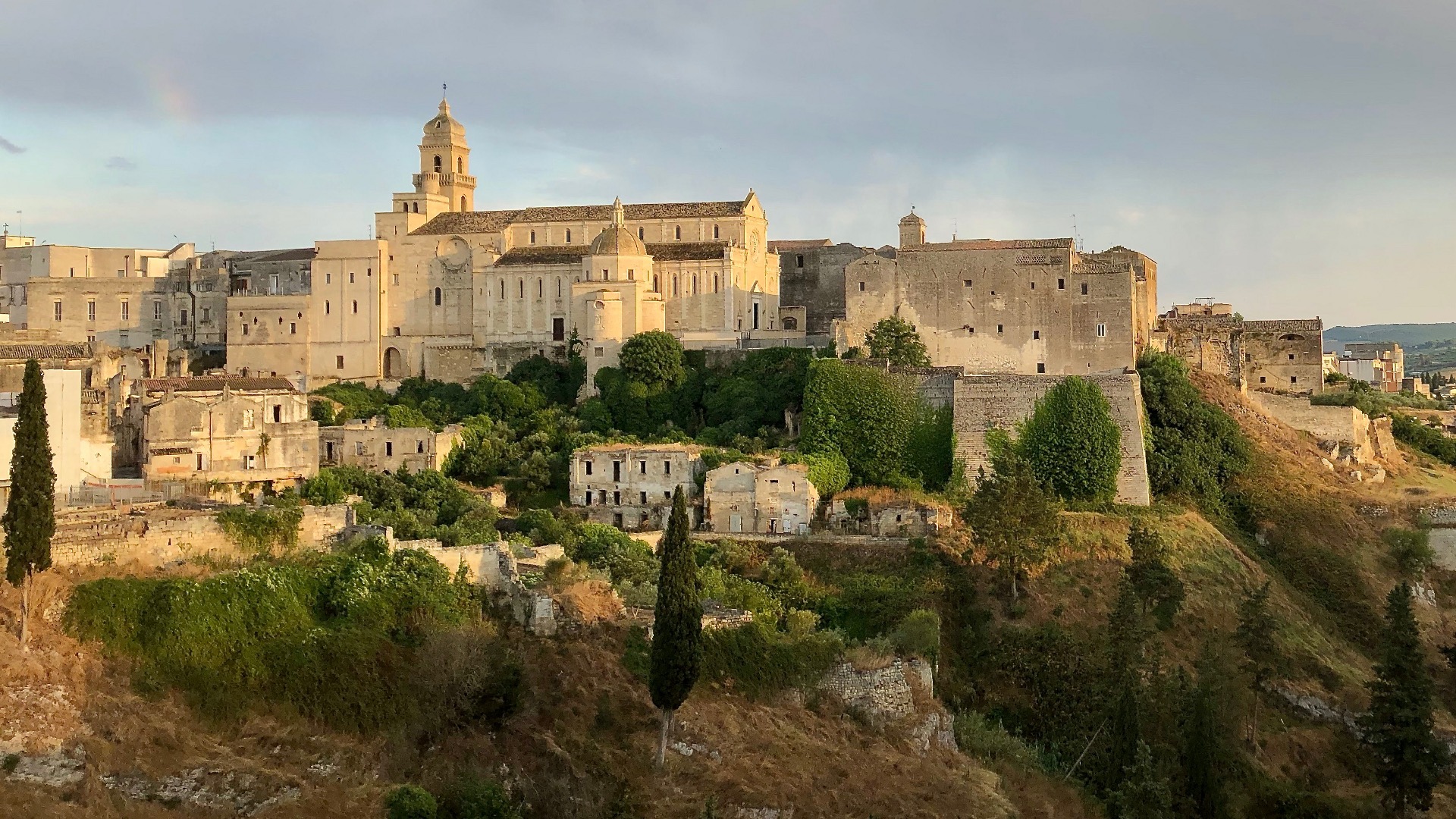Immersive learning, cooking and food and its origins.
Harvesting, shepherding, feasting and the legacy of the ancient Greek Symposium .
Go to the roots of the gastronomical knowledge passed on by generations of shepherds, farmers, cheesemakers, bakers, fishermen, guardians, and storytellers of the hearths. This is a dynamic and interactive workshop that involves you with locals to understand the land, the limestone belly of the south, which produces a cuisine that is a compendium of flavours of earth and sun.
Learn and cook the fundamentals of southern Italian cuisine- Olive oil, wine, durum wheat flour, cheese and seasonal produce. How it is grown, harvested, produced, and cooked. Cook, eat and enjoy it with the community who makes sitting down for meals an important part of their everyday.
Make cheese with the shepherdess using natural rennet. Taste the giuncata (the first cheese of the morning) and make pecorino, ricotta, mozzarella, scamorza and burrata. Find out about natural rennets, and how to form and age cheese. Cook and prepare today’s lunch. Trek the pastures alongside the shepherd at his meditative pace while learning of the plight to preserve shepherding practices and sustainable land use.
Explore the southern Italian food culture shaped by millennia of migrations on the transhumance paths and the trading route of the ancient Via Appia, from the farmlands to the Mediterranean coasts.
Share meals and laughter with your fellow travellers and locals in the exchange of knowledge, ideas and traditions.
Wade through the centenarian olive trees, learn to distinguish a good olive oil, its properties, olive cultivars, and harvest through tastings and talks. Discover the wood oven-baked Altamura bread, the fragrant mother dough, and tour the fortified town that birthed it.
Hit the streets with pots, burners, and baskets of pomodori, melanzane and rucola and share dishes you made from families’ recipes for a dinner al fresco with local guests in one of the historical district courtyards.
Trace the Appian Way, learn about the wheat that makes traditional pasta, and share a long table meal at a rupestrian site. Drink the unique regional wines made from autochthonous grapes preexisting the ancient Greek colonization. Walk through the mazes of Matera, a Unesco World Heritage site, and discover its cave culture history, art exhibitions, and dinner in the piazza of one of the picturesque surrounding hilltop villages: cruschi peppers, cheeses, cured meats, pizzas, artichokes, and wines. We’ll travel through the white-washed towns, red oxide terra and drystone walls of the Itria Valley to reach and inhale the blue Adriatic coast, or travel through the Fossa Bradanica to reach the Ionian Coast for a swim and sunbathe on the beach where Pythagoras used to walk.
Walk the land of the masserie, the fortified farmhouses and cave settlements that represent in Puglia the sum of labour, bounty, and beauty.
The venerated cuisine of the Mediterranean has been created and re-created through the course of history by geography, social customs, migration and the mythical universe wrapped around “eating”. The food culture is inclusive of “lifestyle” which upholds traditional methods of farming and fishing and nurtures the practice of family meals, and social festivities.
The workshop is led by Puglian native Tonio Creanza, the Founder and Director of Messors and 6th generation olive oil and durum wheat producer, along with his colleagues of local farmers, cheese makers, shepherds, historians, restauranteurs, etc.
Tonio grew up on his family farm tending to durum wheat, vineyards and olive tree cultivation in the historical and archeological rich setting of Puglia. As a cultural heritage conservator and 6th generation olive oil producer, his knowledge and passion for food and history is echoed in the workshops he has been running for the past 25 years. The hands-on and in-situ approach of the workshops creates an enriching living school model and culturally connecting experiences for travelers and locals.
Workshop Dates
Shepherds & Food Culture
- September 2 – 8, 2025
- Includes arrival and departure dates
Registration
Email: messors.tonio@gmail.com
Please, let us know which workshop you are inquiring about, along with a brief introduction.
Workshops are instructed in English, and lectures are translated when necessary.
Registration for this workshop closes when we reach a maximum of 14 participants.
Participants’ ages range from the early twenties to the late sixties, as do backgrounds of study and interests.
Applicants not in the general age range are welcome to inquire to discuss details, learn what to expect, and determine the suitability of the workshop’s activities.
You need to be 18 to register (16 y-o if accompanied by an adult).
Participation costs
Shepherds & Food Culture
- September 2 – 8, 2025 3210 EUR
- Includes your stay (shared occupancy), transportation to and from the Bari airport, hotel or train station on arrival and departure days, meals and wine.
- Does not include: airfare, personal health and travel insurance; personal expenses; 1 breakfast, 1 lunch and 1 dinner.
What to expect
This is an active and dynamic workshop. We ask participants to be in good health and be prepared for walks in both rural countryside and town, uneven terrain and southern Italy summer temperatures.
As all of the participants range greatly in age and background, we ask that they be able to participate in activities, appreciate group interaction, and be ready for some impromptu experiences that will arise, creating adventure and a learning environment.
The workshop includes
- The fundamentals of southern Italian cuisine: olive oil, wine, durum wheat flour, cheese, and seasonal produce. How it is grown, harvested, produced, and cooked. Cook, eat and enjoy it with the community.
- Olive oil tasting and talk on “The origin and evolution of olive oil extraction; distinguishing a true extra-virgin olive oil and demystifying supermarket labelling definitions. In the olive orchards – talk on cultivars, pruning, tending, harvesting.
- Drink the unique regional wines made from autochthonous grapes preexisting the ancient Greek colonization.
- From Gravina, walk to the summit of the hill rising above town. Hike through the archaeological site of Botomagno (6th- 2nd century B.C.E.) and discuss how ravine caves and trade routes have shaped food culture.
- Cheesemaking at 3rd century B.C. Fornello Cave site, meet with the shepherd and his family to bring in the flock from pasture and be part of his daily life. Learn about the cheeses of Puglia, traditional rennet, and aging. Participants will make pecorino, mozzarella, bocconcini, treccia, burrata, scamorza.
- All day cooking regional traditional disches at the iconic masseria in the countriside.
- Visit and talk about the evolution of Matera and its Sassi, the unique cave-dwelling settlement inhabited for millennia and a UNESCO heritage site.
- Make bread with fornaio Giuseppe at Antico Forno Santa Caterina (15th-century) and learn about the mother dough of Altamura DOP bread.
- Lecture and walk through the historical town of Altamura: “The urban evolution and rural settlement of Altamura – centro storico from Neolithic to Medieval era: the historical connection of food, social structures, and celebratory customs”.
- White & sparkling wines and swim in the Mediterranean Sea, on the Ionian beach that enticed Pythagoras.
- Local farm- talk on Durum wheat crops, seeding, and harvesting. Learn to make durum wheat flour pasta with different shapes specific to the region.
- Take to the streets of the old town and put your acquired knowledge and skills into practice- prepare and cook dinner with and for locals.
- Excursions to: Matera, Altamura, Ionian Sea, Calanchi region, historical sites of Botromagno, Jesce, Fornello.
*Field trips and projected itinerary are subject to changes depending on weather conditions, museum and third parties operating hours, and unforeseen circumstances.

